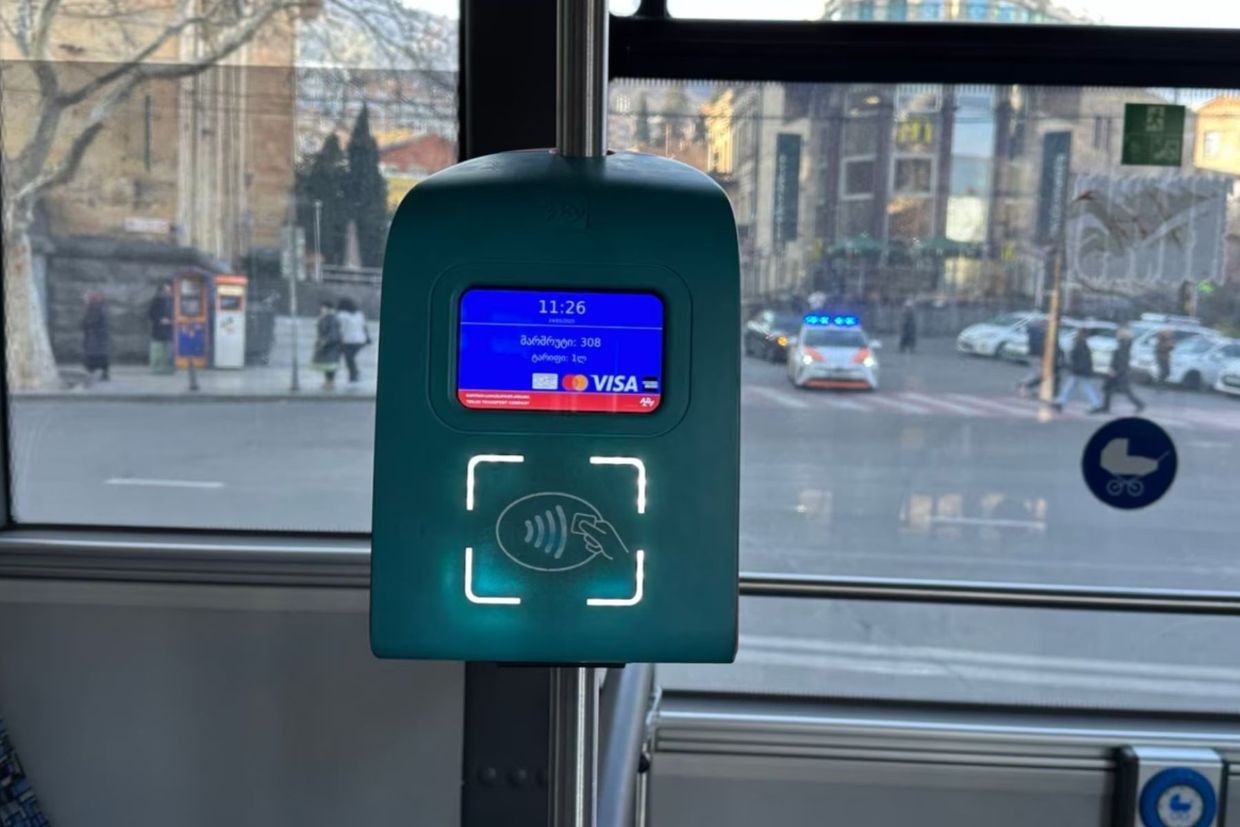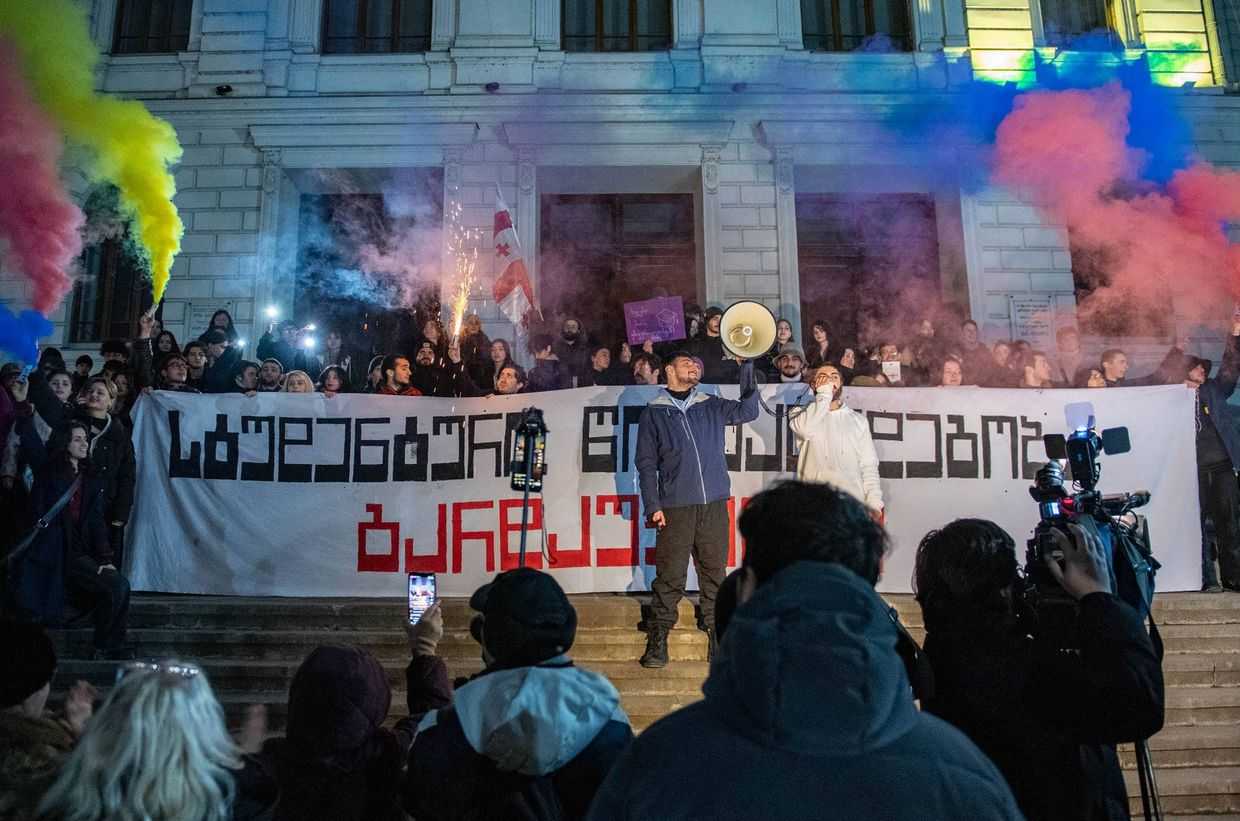
On Friday, Tbilisi City Hall temporarily stopped the transport fare payment system due to a ‘suspected cyberattack’.
Starting on Friday morning, different protest-related appeals and music were heard from the payment machines of Tbilisi buses and minibuses, including the speech delivered by the first President of Georgia, Zviad Gamsakhurdia, on 9 April 1991, the day of the restoration of independence of Georgia.
In addition, the recordings contain the words of Zurab Zhvania, ‘I am Georgian and therefore I am European’, which he uttered in his capacity as Speaker of the Parliament at the Parliamentary Assembly of the Council of Europe on 27 January 1999.
The recording also included the national anthems of Georgia and the EU.
Other recordings included billionaire and Georgian Dream founder Bidzina Ivanishvili’s pledge during the pre-election campaign that he would ‘apologise’ to South Ossetians for the actions of the previous government during the August 2008 War.

The recording also included excerpts of a 2022 speech in parliament by disputed Georgian President Mikheil Kavelashvili. At the time, then-MP Kavelashvili criticised the opposition, and at the end of his speech, he apologised to the public and swore.
‘Among us and those of you who have done the Russian thing and are still doing it, fuck their mother’, he said.
Chants of ‘Glory to Georgia! Glory to Ukraine!’ were also heard from the payment machines on Tbilisi buses.
Tbilisi City Hall stated that ‘on the devices installed in public transport, the technical support of which is provided by the Bank of Georgia’s contractor companies – LLC “MS+” and LLC “Azri”, a fault is detected and an audio recording is turned on’.
‘Representatives of the relevant companies have started working promptly to eliminate the problem. The devices will be turned on in the near future, as soon as the fault is corrected’, the statement read.
‘During the specified period, [public] transport will serve passengers without payment’.
Tbilisi Mayor Kakha Kaladze told journalists that ‘the investigation will definitely determine where the cyberattack came from, with whose involvement, and how it was carried out’.
‘An investigation into the cyberattack must be launched’, he added.
It is unknown who is responsible for the audio material played on the city’s public buses and minibuses.
According to IPN, the passenger payment systems were restored in the early afternoon.
The Interior Ministry told OC Media that the investigation has been initiated under Article 284 of the Criminal Code, which refers to unauthorised access to a computer system.
The previous day, the website of Tbilisi City Mall, which has two locations in the city, was also apparently hacked, displaying messages that included, ‘murder all Jews’, and other obscenities. It is unclear if the two incidents were related.











